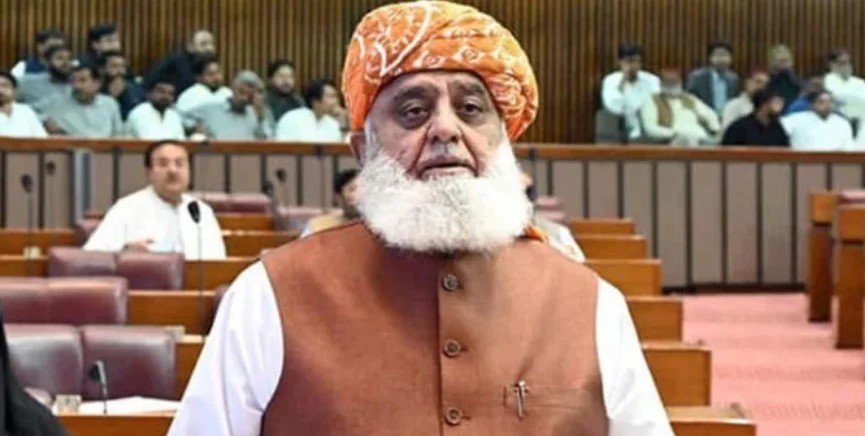In a move that has sparked intense national debate, Jamiat Ulema-e-Islam (F) chief Maulana Fazl-ur-Rehman has publicly opposed the newly proposed or enacted legislation aimed at restricting underage marriages in Pakistan. Terming the law as a violation of Islamic teachings and national traditions, the veteran religious leader announced that his party would initiate countrywide protests to resist what he described as a “Western agenda.”
A Deepening Political and Religious Divide
The proposed law, which seeks to raise the minimum legal age for marriage (especially for girls), has drawn both praise and criticism across Pakistan. Proponents argue that such legislation is crucial to protecting the rights of children, especially young girls who are often subjected to early marriages, leading to severe health risks, loss of education, and psychological trauma. Human rights activists and medical experts have long urged the government to take stricter steps to curb this practice, aligning Pakistan’s legal standards with global norms.
However, for Maulana Fazl-ur-Rehman and many within the religious right, the issue is not merely legal or medical—it is deeply ideological. During a recent press conference, the JUI-F leader labeled the law as a “direct interference in religious and cultural matters.” He claimed that Islamic jurisprudence allows marriage upon attaining puberty, and any legislation that contradicts this principle is unacceptable.
“This Law is Not Acceptable to Us” – Fazl-ur-Rehman
Calling the law a “product of Western influence,” Maulana Fazl-ur-Rehman accused the government of implementing reforms without considering the sentiments and values of the majority. “This is not about protecting children,” he said. “This is about importing Western culture and moral values that are alien to our society and Islamic teachings.”
He went further to accuse the government of bypassing religious scholars and institutions in the legislative process. “You cannot change religious principles through parliamentary decisions,” Fazl-ur-Rehman asserted. “We will not let this law be imposed silently.”
Nationwide Protests Announced
In response to what he sees as an unacceptable and dangerous precedent, Maulana Fazl-ur-Rehman announced that his party would begin a series of nationwide protests. According to him, the movement will be peaceful but widespread, encompassing rallies, public speeches, and media campaigns designed to raise public awareness.
“We are not against protecting children,” he clarified. “But we will not allow religion to be sidelined in the name of reform.”
The announcement has already begun to stir strong reactions across the political spectrum. Some religious seminaries and allied parties have expressed support for the JUI-F stance, while more progressive and liberal elements within society have criticized it as regressive and harmful to national progress.
Government’s Stance and Civil Society Reaction
In contrast, the federal government has defended the proposed legislation as a necessary step toward protecting minors from early marriages that often have long-term negative consequences, particularly for girls. Several lawmakers have pointed out that the law does not target any religion but simply seeks to align national policy with international human rights standards.
Civil society organizations, women’s rights groups, and child welfare advocates have praised the law as a landmark move. Many argue that invoking religion to justify child marriage is both a misinterpretation of Islamic principles and a failure to prioritize the health and future of the country’s children.
“The Prophet (PBUH) emphasized the importance of consent, mental maturity, and the well-being of spouses. Using Islam to defend underage marriage is not only misleading but dangerous,” said a spokesperson for a leading human rights group.
A Complex and Sensitive Issue
The controversy underscores the complex relationship between religion, law, and cultural traditions in Pakistan. While religion plays a central role in the lives of millions, legal reforms aimed at social progress often trigger backlash when they are perceived as challenging religious authority.
Maulana Fazl-ur-Rehman’s stance is likely to resonate with large sections of the rural and conservative population, particularly in areas where child marriage remains prevalent. However, urban populations and progressive circles may see this as yet another attempt by conservative leaders to stall legislative progress and maintain socio-political control.
What Lies Ahead?
The coming weeks are expected to be politically charged, with nationwide demonstrations from both supporters and opponents of the child marriage law. The government will need to balance respect for religious values with its responsibility to protect children and uphold international human rights commitments.
For now, the stage is set for yet another showdown in Pakistan’s ever-evolving struggle between tradition and reform. Whether the child marriage law survives this storm—and in what form—remains to be seen.
Reference: مولانا فضل الرحمن کا کم عمری میں شادی کے قانون پر ملک بھر میں احتجاج کا اعلان





